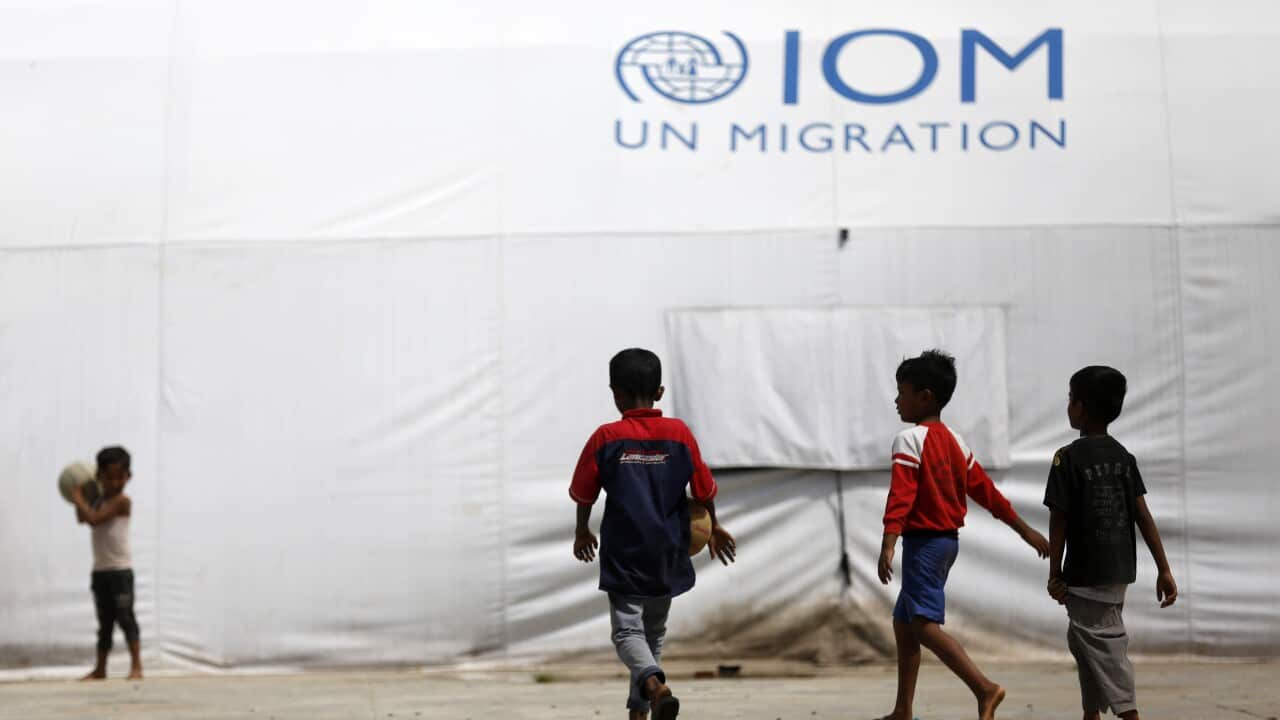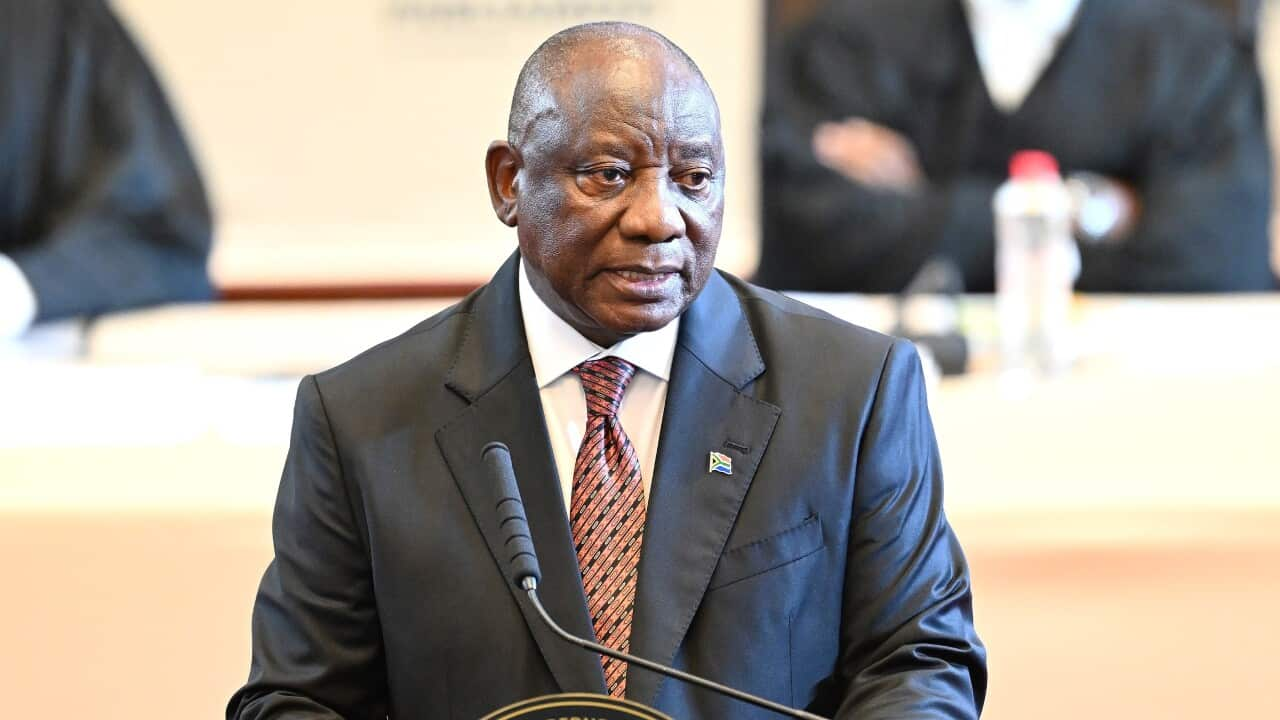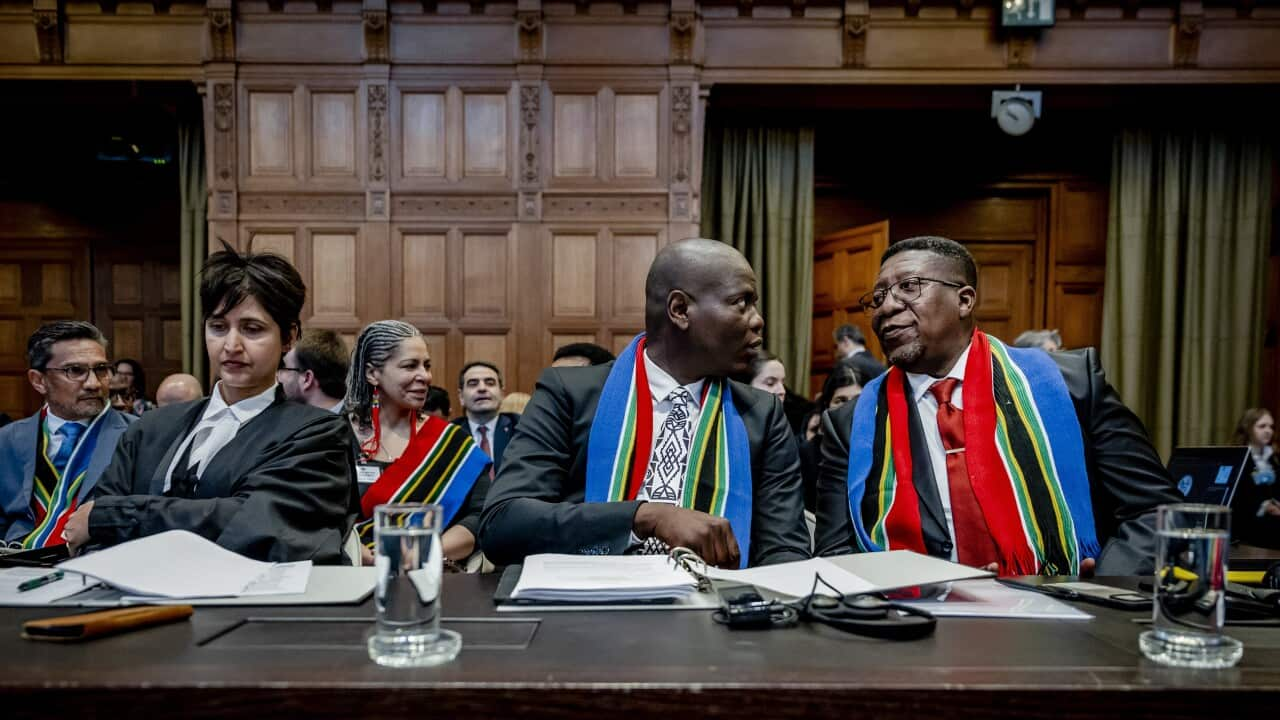The Trump administration has welcomed 59 white South Africans it granted refugee status in the United States, having deemed them victims of racial discrimination.
The move has drawn criticism from Democrats and stirred confusion in South Africa.
Since his inauguration, US President Donald Trump has blocked mostly non-white refugee admissions from the rest of the world, but in February offered to resettle Afrikaners, the descendants of mostly Dutch settlers, saying they faced discrimination.
US senator Jeanne Shaheen, the most senior Democrat on the Senate foreign relations committee, called the move "baffling", saying it's clearly "politically motivated and an effort to rewrite history".
What's behind the decision?
Asked why white South Africans were being prioritised above the victims of famine and war elsewhere in Africa, Trump said, without providing evidence, that Afrikaners were being killed.
"It's a genocide that's taking place," Trump told reporters at the White House, going further than he has previously in echoing right-wing claims about their alleged persecution.
He was not favouring Afrikaners because they are white, Trump said, adding their race "makes no difference to me".
How has South Africa reacted?
South Africa maintains there is no evidence of persecution and that claims of a "white genocide" in the country have not been backed up by evidence.
Treating white South Africans as refugees fleeing oppression has drawn alarm and ridicule from South African authorities, who say the Trump administration has waded into a domestic issue it does not understand.
Speaking at a conference in Ivory Coast, South African President Cyril Ramaphosa said the white Afrikaners had supposedly left because they were opposed to policies aimed at addressing racial inequality persisting since apartheid, or white minority rule, ended three decades ago.
"We think that the American government has got the wrong end of the stick here, but we'll continue talking to them," he said.
Since Nelson Mandela won South Africa's first democratic elections in 1994, the once-ruling white minority has retained most of its wealth amassed since colonial times.
Whites still own three-quarters of private land and have about 20 times the wealth of the Black majority, according to the international academic journal the Review of Political Economy.
Less than 10 per cent of white South Africans are out of work, compared with more than a third of their black counterparts.
Where did the discrimination claim emerge from?
The claim that minority white South Africans face discrimination from the black majority has become an established notion in right-wing online chatrooms and has been echoed by Trump's South African-born ally Elon Musk.
Those who claim white South Africans face persecution cite employment laws, violent attacks on white farmers and the new land law.
Out of 26,000 murders in South Africa last year, 44 were linked to farming communities, according to police statistics. Crime researchers say the overwhelming majority of murder victims are black.
What is the state of US-South Africa relations?
Trump said South Africa's leadership was travelling to meet him next week, and that he would not travel to a G20 meeting there in November unless the "situation is taken care of".
US secretary of state Marco Rubio said in February he was skipping a G20 foreign ministers' meeting in South Africa, accusing the government there of "doing very bad things".
Since his return to the White House in January, Trump has cut all US financial assistance to South Africa, citing disapproval of its land policy and its "aggressive" position against US ally Israel at the International Court of Justice.
With additional reporting by the Reuters news agency.




